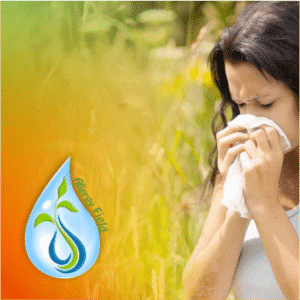
An Allergy is a reaction that occurs by the body’s immune system when it encounters a perceived invader. Signs or symptoms usually come on fairly quickly after exposure.
Allergic reactions can manifest as a variety of symptoms. They can affect your respiratory system, digestive system, nervous system and your skin.
Do you suffer from Hayfever? Sneezing, itchy eyes or throat, blocked nose and watery eyes could mean that you have an allergy to dust, dust mite or mold.
If these symptoms appear seasonally then it could be an allergy to pollens, grasses or weeds.
People often assume that sneezing, coughing and blocked nose are always caused by environmental allergens, but that is not the case. Dairy, alcohol, gluten and other food allergens can also cause these symptoms.
When exposed to an allergen the immune system produces antibodies called Immunoglobulins. These antibodies travel to cells that release chemicals, causing an allergic reaction.
Intolerances are different to allergies because they are usually a slow onset reaction. If you have difficulties in digesting, processing or absorbing certain foods, you might have food intolerances. An intolerance reaction is often an accumulative response. The severity of the symptoms depend on exposure duration and/or amount consumed.
Post nasal drip which is persistent mucus at the back of the throat is often associated with food sensitivities.
Food intolerances can often cause itchy skin, coughing, diarrhea, constipation, acid reflux or bloating. A common food sensitivity that most people aren’t familiar with is sensitivity to salicylates. Salicylates are found in so many foods that we consider healthy such as fruit, vegetables, nuts, seeds and spices. Click here to find out more about salicylates intolerance.
People can be allergic or sensitive to food, medicine or environmental substances. The reactions can include coughing, sneezing, vomiting, migraines, watery eyes, eczema, psoriasis, dermatitis, brain fog, hives, diarrhea, constipation, acid reflux, bloating and chronic pain.
The conventional treatment for allergies is to block the immune system’s response when coming in contact with an allergen. In more severe cases the entire immune system is suppressed with steroids, both systemic and topical. While this approach can provide symptomatic relief, it does nothing to address the underlying cause of the problem. Doctors often recommend complete avoidance of any known allergens as a way to reduce the severity of the symptoms.
The conventional treatment for intolerances is to avoid the food or environmental factor, thereby not going over the reaction threshold. This is often easier said than done as there could be multiple intolerances present and a reaction can develop over days and weeks making it hard to pinpoint what is causing the flare up.
A naturopath would most likely recommend an elimination diet of potential culprits and by slowly introducing foods back, it should be easier to notice what is causing your symptoms. This is a long and hard process and in my experience, unnecessary.
The treatment I offer can help determine what allergens are most likely to be responsible for triggering your reaction. The treatment is simple, non invasive and pain free. You cna be treated in our clinic or in the confort of your own home at a time that suits you.

